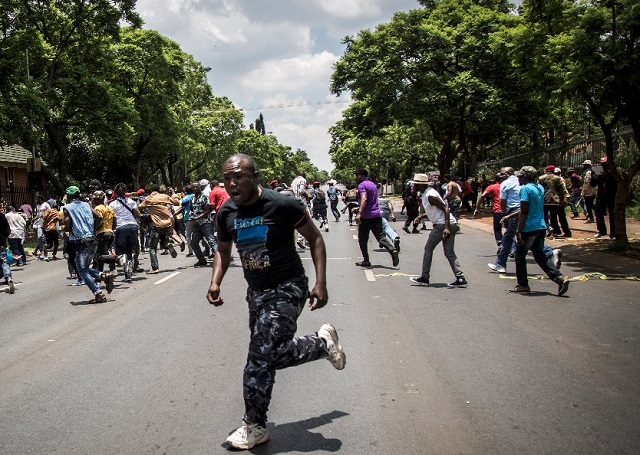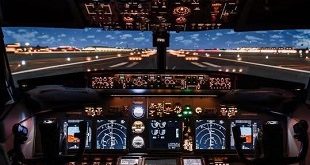
Gunfire and arrests in DR Congo as Kabila’s mandate ends
Kinshasa, DR Congo | AFP |
Gunfire erupted in major DR Congo cities and the UN voiced alarm over a wave of arrests, as protesters demanded President Joseph Kabila step down after his mandate expired Tuesday.
With fears of violence high in the vast and unstable nation, shots rang out in the capital Kinshasa, there was sustained gunfire in the country’s second city of Lubumbashi, and the thud of heavy weapons in central Kananga.
Plumes of smoke from burning barricades hung over Kinshasa after overnight protests, and activity ground to a halt as troop carriers patrolled the largely empty streets of the megacity of 10 million.
Tension has been mounting for months in Democratic Republic of Congo ahead of the December 20 deadline for Kabila’s second and final term in office to end.
With no election planned and no sign of the president stepping down, veteran opposition leader Etienne Tshisekedi finally issued a plea to the country’s 70 million people to reject the Kabila administration.
The international community has warned of spiralling violence and France urged the government to “respect human rights” as the UN voiced alarm over the arrests of 113 opposition leaders and civil society activists in four days.
“I am gravely concerned by the arrests of those who seek to express their political views,” said Maman Sambo Sidikou, who heads the large UN mission in Congo.
An AFP correspondent said the streets of Lubumbashi’s Matuba neighbourhood were strewn with rocks and burnt tyres early Tuesday amid a heavy police presence.
Local authorities said “police were forced to fire into the air to disperse civilians” because some protesters were armed. It was impossible to immediately verify that claim.
In Kananga in central DR Congo, residents reported the sound of light and heavy arms near the airport. A priest said there were scenes of panic as residents fled the area.
– ‘Teargas and gunfire’ –
Several people are thought to have been killed in the unrest in various regions, but this has yet to be confirmed.
National police spokesman Pierre-Rombaut Mwanamputu told AFP he was unable to give an immediate toll after the violence.
“Fortunately, we are not back to the slaughter of September,” he said, referring to bloodshed in September when at least 53 anti-Kabila protesters died in two days, according to the UN.
The 45-year-old leader, who has ruled since 2001, is constitutionally barred from seeking a third term but under a controversial recent constitutional court order, he may stay on until a successor is chosen.
As the clock ticked on Tuesday’s end-of-mandate deadline, crowds had gathered before midnight Monday to blow whistles and beat on improvised drums, calling on Kabila to quit.
“There was teargas and gunfire,” said Andre, a resident of Kinshasa’s Matete neighbourhood, adding that security forces “threatened the population.”
And in what opponents dubbed “a provocation”, state TV overnight announced a new government.
Headed by Samy Banibanga, it is part of an October deal between the ruling party and tiny fringe opposition groups that enables Kabila to remain in office pending elections in April 2018.
But the main opposition bloc rejects this plan.
– ‘Caving in to pressure’ –
In a YouTube video released during the night, opposition leader Tshisekedi launched “a solemn appeal to the Congolese people to no longer recognise the authority of Mr. Joseph Kabila, to the international community to no longer deal with Joseph Kabila in the name of the Democratic Republic of Congo”.
Valentin Mubake, a close aide to Tshisekedi, confirmed to AFP that the video was authentic.
The message was not available in the DR Congo where authorities since Sunday have imposed controls on pictures and video on social media networks.
Tshisekedi said he hoped to continue talks launched by the Catholic Church last week to find a peaceful solution to the crisis. The talks were halted Saturday with no significant progress but were to resume on Wednesday.
The opposition wants elections next year and a pledge Kabila will not stand.
DR Congo’s 70 million people have never witnessed a democratic transfer of power following polls since independence from Belgium in 1960.
The president has been in office since his father Laurent Kabila’s assassination in 2001. He was elected in 2006, and again in 2011.
Some two decades ago, Congo collapsed into the deadliest conflict in modern African history, its two wars in the late 1990s and early 2000
 The Independent Uganda: You get the Truth we Pay the Price
The Independent Uganda: You get the Truth we Pay the Price



